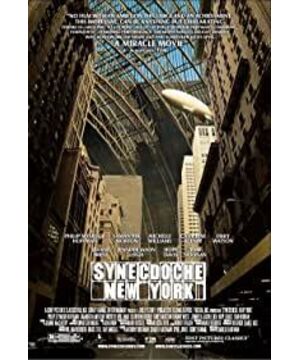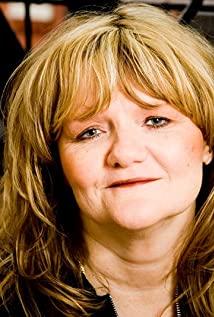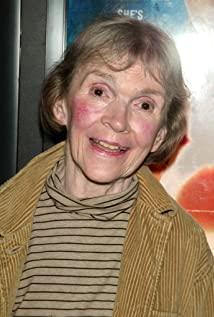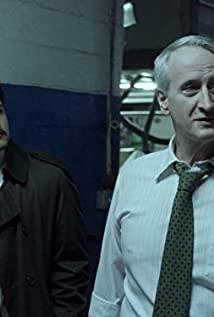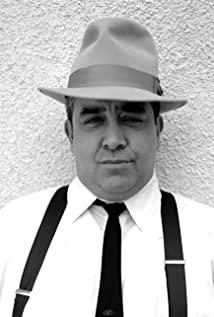Text on My Dying? Jiang Xiaomao
2013-05-14
Some thoughts written at the front of the article:
I think that any analysis and comment on a film like "New York Synonymy" with cosmic care, coexistence of evil spirit and aura is probably insufficient . A film with mixed reviews, for those who like it, there is too much material to analyze, but for those who hate it, the movie is probably not as real as the little person at the end of the credits. To be honest, there are a lot of places in this film that I don't understand, I just want to record some of my own viewing experience here. This article is not really a film review, and I have not read the analysis written by other friends, not even the review of the "New York Synonymy" by the master Roger Ebert. So this is just a superficial essay, if it is really too shallow to the point of outrageous, please point it out warmly.
"New York Alchemy" - if we just look at the title and ignore the content of the film, we may think that this is a movie like "New York I Love You" and "Paris I Love You" are a platter of movies about cities, love, life, etc., at least naively I thought so. So the sense of disillusionment was quite strong when we found out that the film was shrouded in an atmosphere of death from the very beginning. In the movie, the clamp of death is gradually tightened: from newspaper obituaries, the deaths of people who have nothing to do with them in various disasters gradually gather to the deaths of family members, wives, mothers, and then one step closer to the protagonist Caden's death The suicide of the surrogate self, the suffocation of his beloved Hazel until it gradually approaches the protagonist Caden himself. The process of gradually narrowing the scope of death is the process in which we follow Caden's footsteps and gradually discover the charm and mystery (or nonsense and boredom) of the film. In the whole process of watching the film, the character Caden played two main roles: 1. He is the center of all real events and the main narrative point of view of the film. In the whole film, we almost always see the world from Caden's point of view. ; 2. As a stage director, Caden is the master of the play within the play and the link between reality and drama.
First of all, Caden is the only center of the trivial story, and throughout the film we identify and evaluate other characters through Caden's subjective consciousness. The story of Synonyms of New York is presented in an extremely fragmented way, and we can hardly find any regularity or method to put these fragments together. This is completely different from the viewing experience of other well-known fragmented films such as Memento. In Memento, each fragment is like a vector with a direction, and we always know in which direction to trace the source. And "New York Alchemy" is like a film that the original script was torn into pieces and thrown into the air, and after it fell to the ground, the director picked it up and sorted it out. In this case, in order to allow the broken story to have a narrative foothold, the director put Caden at the core, and only allowed the audience to see the world through Caden's subjective consciousness. Just as we always hope to have a pillar in the chaotic life, Caden is our life-saving straw in the film. Through his steady eyes, we can gain insight into this momentary and inexplicable world, and will not be cluttered. Scenes and narratives get dizzy. (But it's still very dizzy ==)
The stage play is the top priority of "New York Synonymous Law", which is why Taiwan translates this film as "New York Drama within a Drama". The stage play perfectly interprets a line in the film - "concentration of time, and disorder of chronology" (the condensation of time, the confusion of narrative). Caden's seventeen years of bleak, dying life were thus highly condensed into a mega-stage play never before seen by an audience. As the director of the stage play, Caden can naturally shuttle between the scenes in the play during rehearsal. It is no longer a question of whether or not to break the fourth wall, but that this wall has never existed from beginning to end. For the audience, the collapse of the fourth wall will bring infinite surprises and miracles, such as "Annie Hall"; but for Caden as a director, the collapse of this wall means that both in real life and in He can no longer find any shelter in art - chaos and tragedy have permeated all aspects of his life, gradually gnawing at the last peace of his mind, like a tumor in his brain that is constantly eroding his body. At this time, Caden was dying both physically and psychologically.
How did the disappearance of the fourth wall ruin Caden's life? I think there are about three steps. At first, the actors of the stage play were no longer content to follow the director's instructions and imitate reality, but became an active force that unearthed and exposed many secrets that Caden wanted to hide in his heart. The most typical is Caden's mysterious stalker Sammy. Sammy plays Caden in the stage play, and because he has been secretly following Caden for many years, he knows Caden's privacy inside out. In a rehearsal, Sammy played opposite Caden's then-wife Claire, and told the deadly secrets of Caden's visit to his ex-wife's residence along the plot, causing Caden and Claire to break up. Later, these actors "got an inch", and they were no longer satisfied with only showing their power in the framework of the stage play, but began to retrograde through the non-existent fourth wall, making the stage and real life entangled. For example, Sammy should fall in love with Hazel in the play according to the setting of the script, but he jumped out of the script and fell in love with Hazel in reality. This marks the beginning of the film's real chaos. Gradually, the free will of the actors became stronger and stronger, and they began to change the direction of the script through their own actions. For example, Sammy again, this wonderfully haunted character, who jumped off a tall building to end Caden's life in the script. This free will was later developed to the extreme, and the film was advanced to the third stage, the exchange of stage and reality. During this phase, Ellen in the stage play becomes the real director, and Caden in real life becomes Ellen in the stage play. It's confusing isn't it, that's right.
As a result, Caden is no longer the core of the film, but a marginal Ellen. But even as a fringe, the story holds up for a while because that's what the movie is about. Synecdoche means substituting the part for the whole, the whole for the part, and so on. Every fringe person in this film can mirror the life of the central character, because that's the essence of allusions. There is a famous saying that happy people are happy in the same way, but unfortunate people are unhappy in their own way. But in the face of this small film, this famous saying that has stood for centuries seems to be gradually disintegrating.
Of course, it's not just the famous quote that is disintegrating, but also the structure of the story of the New York Synonymy. Caden's marginalization means that his story has come to the edge with him. As a pawn who accepts the director's instructions at any time, he no longer has any control over his stage life. When the story reached its final emotional climax, Caden's stage life came to an abrupt end, and a powerful "Die" pronounced the end of the stage play and the film. But the long blank screen after the "Die" voice does a good job of enhancing the openness of the ending, and we can't help but wonder who died? Is it Ellen played by Caden? Is it thousands of real-life Ellens? Or the dying Caden? But this question seems to have a very simple exit: anyone can die. Because after all, within the framework of the allegorical method, we are all the same, suffering the same, carrying the same rack. Perhaps each of us moviegoers is also dying, and when life falls apart, our lives will also disappear.
There are too many uncertainties in the film, but one thing is certain, that is, life is uncontrollable. The fallen Olivia can't recognize her father even though she is only separated by the glass window, and no one can explain why, because life is so uncontrollable. Then there's Caden's ever-changing stage play concept, where every idea is interrupted by life's surprises, and the last one is blasted off the stage before it's even spoken. But it is because life is so fickle that there is a morbid fascination with it. As we are dying, Synonyms of New York may be a light dirge.
View more about Synecdoche, New York reviews


